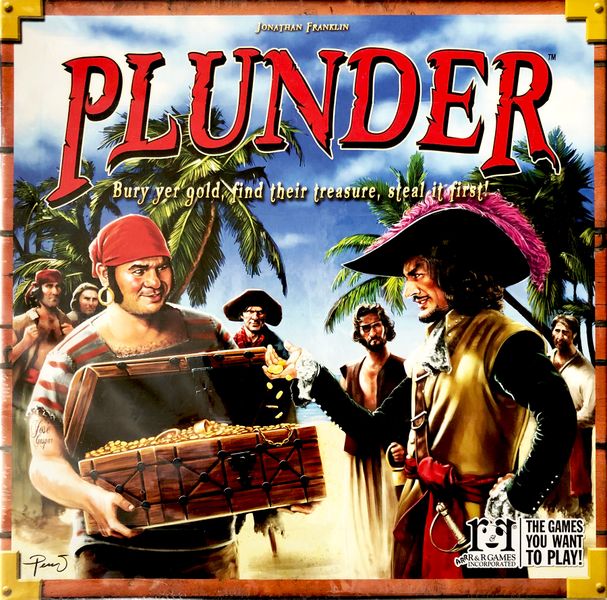Plunder (2013) Board Game
Plunder is a card game designed by Michael Perry and released in 2013 by R&R Games. The game is set in the world of pirates and players take on the role of pirate captains competing to build the best crew and gather the most treasure.
Game Components of Plunder
How To Setup Plunder
To set up Plunder, each player chooses a pirate and takes as many crew cards as there are players. They also receive a solution grid sheet for their pirate. The island, marker, and trap map decks are shuffled, and one card from each deck is dealt to every player, indicating where they have buried their treasure. The rest of the cards are placed back into the box without being looked at. The clue cards are separated by color, shuffled, and formed into separate draw decks. The player who goes first is then chosen.
Gameplay Mechanics and Game Objective
Player Experience
In Plunder, players are constantly engaged as they gather clues and make educated guesses about the locations of other players’ treasures. The game maintains player involvement until the very end, as every player gets to guess and incorrect guesses do not penalize them. However, the game suffers from a lack of significant advantage for the player asking the questions, as all information is shared among players, making it challenging for any player to gain a substantial lead.
Pros
Cons
Personal Thoughts on Plunder
Plunder is ideal for fans of deduction games like Clue, offering a pirate-themed twist that adds a unique flavor. It’s suitable for players who enjoy strategic thinking and are comfortable with a bit of luck involved in the card draws. However, the game may not be the best fit for those seeking a game with significant player differentiation or a strong competitive edge. For families or casual gamers, Plunder provides a fun and interactive experience that keeps everyone involved until the end.
We are supported by our audience. When you purchase through links on our site, we may earn an affiliate commission, at no extra cost for you. Learn more.

